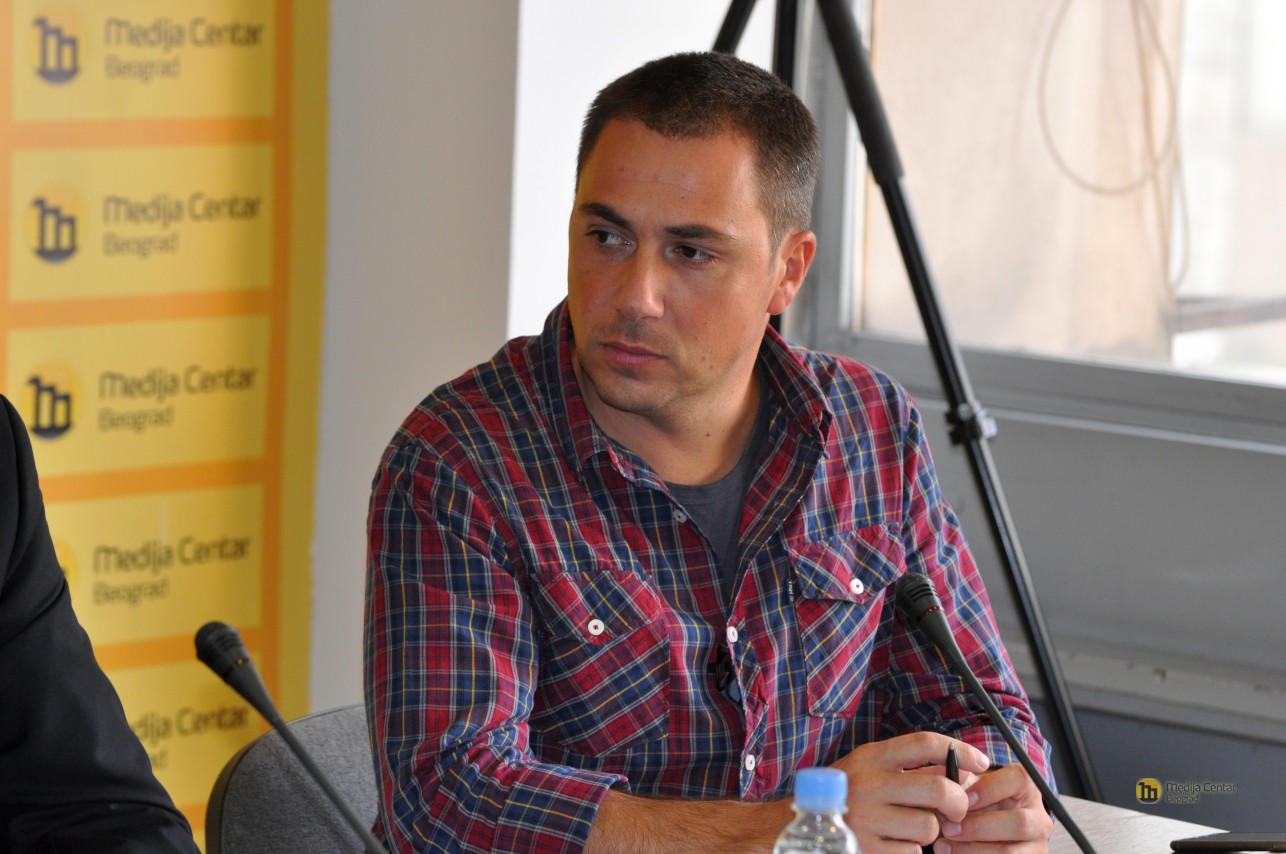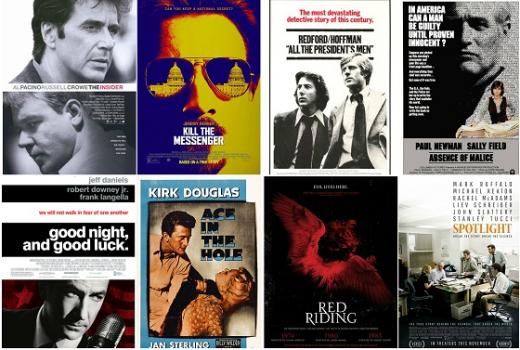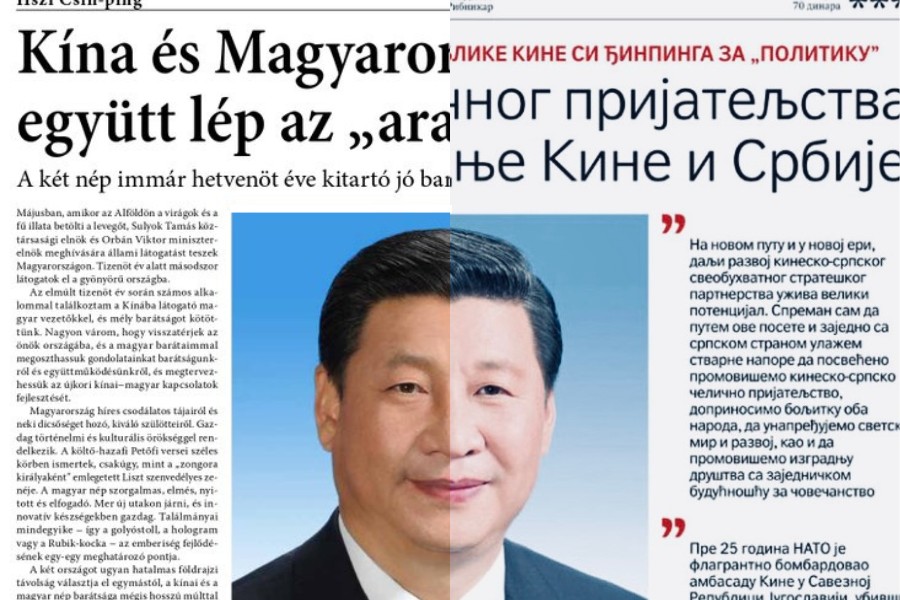
Foto: MCB
Editor’s note: The Fix is running the “What’s your media job” series where we look at different job positions and career trajectories in and around the news industry. This story is based on an interview with Predrag Blagojevic, co-founder and former leader of Serbian outlet Južne vesti
In a café in Niš, Serbia’s third-largest city, Predrag Blagojevic sat across from the head of the OSCE Mission, sharing a seemingly casual coffee. To onlookers, it was an unremarkable scene. In reality, it was a move to show international support for a journalist under pressure.
This meeting captures the complex world Blagojevic navigated as founder and editor-in-chief of Južne vesti, one of Serbia’s leading independent news portals. For over a decade, he advanced investigative journalism in a country where press freedom was increasingly under threat.
Now based in Vancouver, Blagojevic advises media outlets as a Media Development and Community Engagement Advisor for IREX. His journey – from building Južne vesti from the ground up to eventually leaving his homeland – sheds light on the hurdles facing independent media in Serbia and beyond.
The story of Južne vesti
Južne vesti, which translates to “Southern News,” was born in 2009 out of Blagojevic’s frustration with the state of journalism in Serbia. “I had a very good story about corruption at the Nis International Airport,” Blagojevic recalls. “My editor told me, sorry, we cannot run this.” After being turned down by several national outlets, Blagojevic decided to create his own platform.
Starting with just two web developers and himself as the sole journalist, Južne vesti began as a fresh project focused on southern Serbia. Their mission was clear: to cover local issues and uncover corruption.
This niche focus quickly gained traction. Within months, they won their first investigative journalism award – a milestone as the first online media outlet in the Balkans to receive such recognition. The outlet grew rapidly, and partnership with BBC World Service further cemented their reputation.
However, with increased prominence came increased scrutiny. Blagojevic and his team faced mounting pressure from government officials and online harassment.
Despite these challenges, Južne vesti’s innovative approach to sustainability set them apart. Alongside traditional grant funding, they developed a sister company, Simplicity, focusing on web development. This commercial venture provided additional income, and also allowed them to create and sell content management systems tailored for media outlets. “In 2012, when we didn’t have enough money to survive… we got money from our for-profit sister company,” Blagojevic says.
They were committed to financial independence. Blagojevic proudly notes that Južne vesti was one of the few media outlets in Serbia that didn’t owe any taxes.
However, the constant pressure took its toll. Blagojevic’s mental health suffered, and the threats extended to his family. His wife, a university professor, faced pressure at work due to his journalism. The final straw came when Blagojevic and his top executives were threatened with arrest on dubious charges.
International support, while crucial, couldn’t fully shield them from the attacks. Meetings with high-ranking diplomats and public shows of support from embassies provided some protection, but the day-to-day reality of running an independent outlet in Serbia remained fraught.
In 2018, Blagojevic made the difficult decision to leave Serbia and step back from active involvement in Južne vesti. “I don’t consider that to be a win,” he reflects on their legal victories against government charges, which cleared them of all the allegations. “We won, but what was the cost?”
Today, while having formally remained a co-owner before September 2024, Blagojevic is no longer involved in Južne vesti’s operations.
Blagojevic’s advice for media leaders
Drawing from his experience, Blagojevic offers measured advice to aspiring media founders, especially those working in challenging environments. His initial reaction when asked for advice for people interested in launching a media outlet is cautionary: “Don’t do it. It’s not worth your health.” However, he follows this with a more nuanced perspective.
Blagojevic shares a metaphor he once used at a conference in Sarajevo. He asked organisers to turn off all the lights in a large hall, leaving only the tiny LED on his phone visible. “Even though it’s a tiny LED, when it’s completely dark, even this tiny light is visible from all around the room,” he explains. This, he argues, is the role of independent media in oppressive environments:
In the times of complete darkness in a country, even the smallest tiny light can be seen from anywhere



 Saragusti: Niko sada nije bezbedan. Zločini su jezivi. Novinari su ubijeni dok obavljaju svoj posao
Saragusti: Niko sada nije bezbedan. Zločini su jezivi. Novinari su ubijeni dok obavljaju svoj posao Filmovi o novinarima i za novinare
Filmovi o novinarima i za novinare Deset medijskih sporazuma za „zajedničku budućnost” sa Kinom, zemljom cenzure i progona novinara
Deset medijskih sporazuma za „zajedničku budućnost” sa Kinom, zemljom cenzure i progona novinara
Ostavljanje komentara je privremeno obustavljeno iz tehničkih razloga. Hvala na razumevanju.